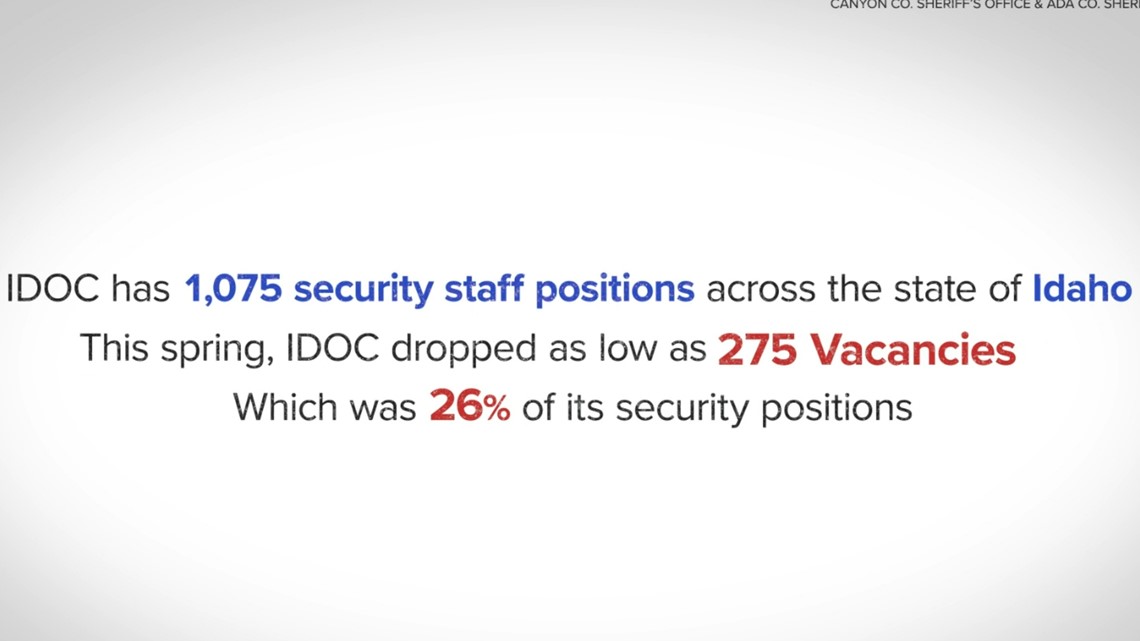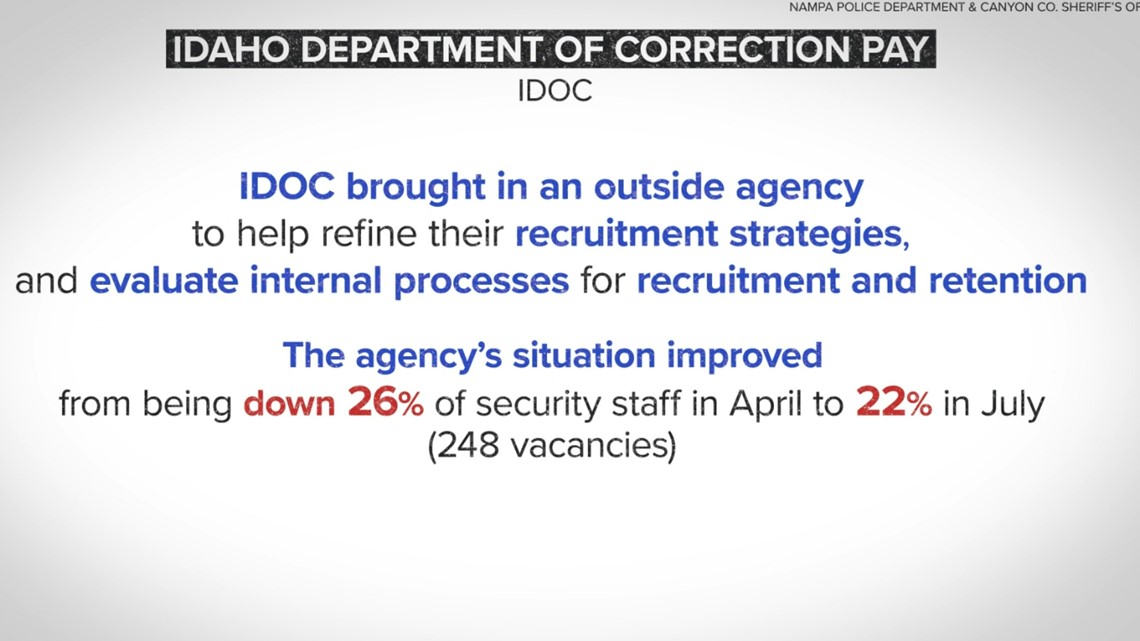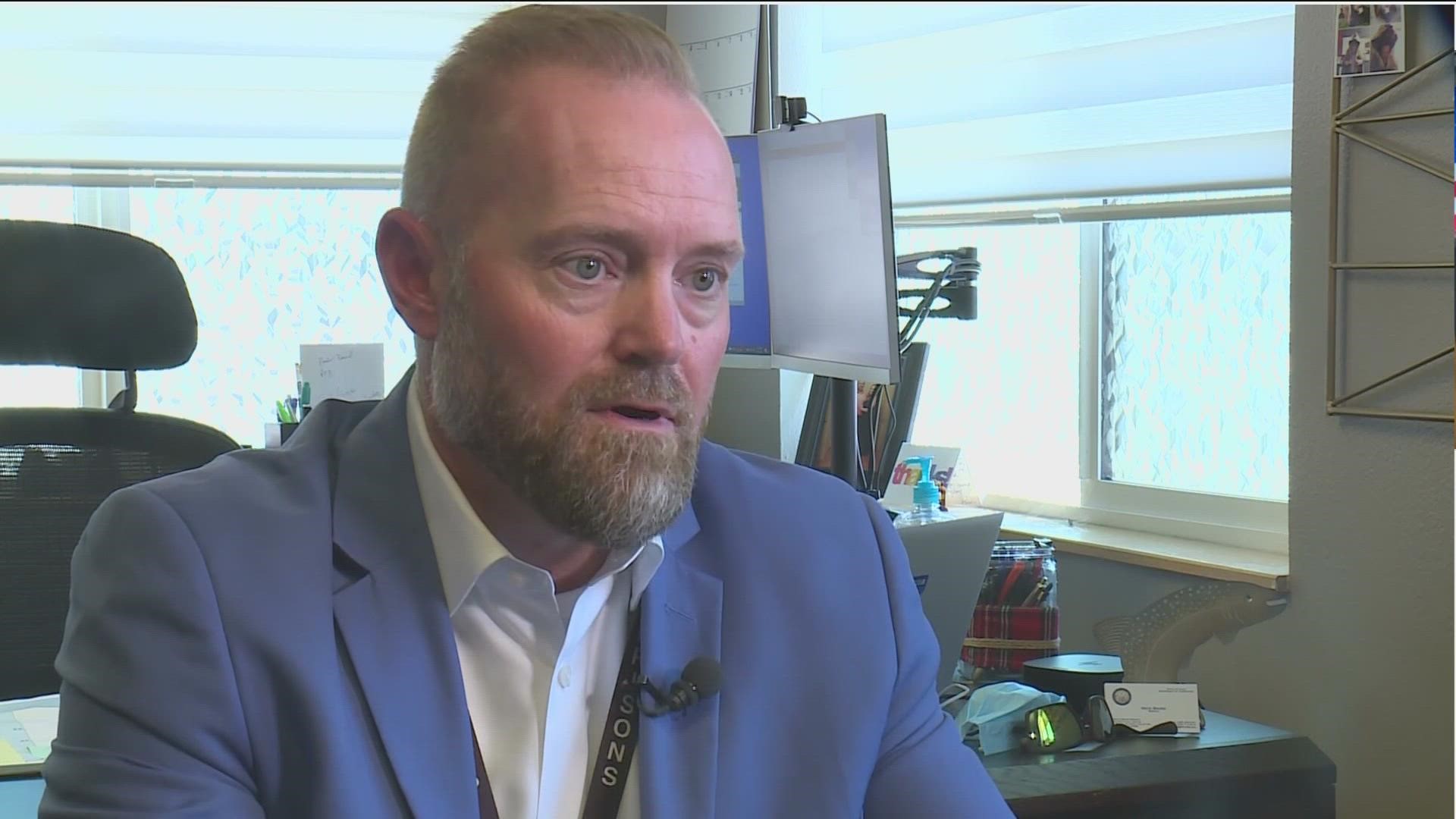BOISE, Idaho — From Canyon County in the West, Kootenai County in the North, and Bonneville County in the East, law enforcement agencies across Idaho are struggling to hire, and retain, officers and staff.
As the state sees an influx of newcomers, low unemployment, and a hot housing market, coupled with record inflation, some law enforcement agencies are struggling with shortages and burn out, while battling increasing crime.
'We’re Hiring' signs line windows all over the state, but most other industries do not face some of the negative perceptions law enforcement agencies do, adding to the challenge to recruit and retain employees.
The Idaho Department of Correction knows this pressure, as it faced critical staffing shortages in the state’s prisons over the past year.
“While, a lot of people were hunkering down at home and trying to figure out what was next, our folks were showing up to work every single day. And we held really, really strong for a significant amount of time, especially early in the pandemic,” said Josh Tewalt, director of Idaho Department of Corrections (IDOC). “And now, I think, is a confluence of events where, that hypervigilance and that demand took its toll.”
“As you would have those spikes in COVID, as you would have those increases in quarantine, you'd also see folks just get burnt out, get exhausted. And I think you see the result in turnover,” Tewalt said. “As people leave, it has a disproportionate effect on the people who stay behind and which then creates another cycle of burnout.”
Morgan Romero: Do you know how many positions you're down currently?
“I want to say we're hovering around that 76% staffed rate,” Tewalt said. “You feel the effects of that staffing, and it's not just for the people who work in our correctional facilities, it's for the people who live there too, because that means there are certain things that we can't do in the same way. It means we may not have staff to be able to provide escorts to various places that people may need to go, whether it's to receive programming, to do visiting, or to do some of those other things.”


Romero: Would you guys say you're at a crisis level right now in the staffing?
“Yeah, I think we are. And then I mean, you look at where we were last winter, when the governor activated the National Guard to come help at our facilities, you know, our situation has improved, but it hasn't resolved. And so we still are at a critical level,” Tewalt said. “What I think we have now, more than we did then, is the competence that we're on the right trajectory to continue to make steady progress towards improving our staffing levels.
In April the starting pay for IDOC officers moved from $19 an hour up to $20.25 an hour. That starting pay is still less than Canyon County jail deputies made, and comparable to what Ada County jail deputies made, in FY 2022.
But as correctional officers climbed the pay ladder last fiscal year, their wages did not keep up with Ada and Canyon counties.
In FY 2023 (which started in July for the State of Idaho) the maximum pay correctional officers can make is $39.05 an hour. That's comparable to many Ada County detention deputies' recently-approved new hourly wages for FY 2023 (beginning October 1).
Along with raises, IDOC now pays sign-on bonuses and yearly bonuses after five years.
Romero: Does pay help with recruitment and retention?
“It's significant, but it's also not the answer. It's part of the answer. A lot of work comes down to tolerance threshold: I'm willing to put up with this much trouble for this much pay. It's on us as employers, it's on us as leaders in the Department of Correction to make sure that you have that balance,” Tewalt said. “That you're compensating people in a way that is fair and commensurate with the work that they do. But that you're also creating an environment where they are fulfilled by the work that they do, because I think that has an intrinsic value that keeps people coming to work every day, given the unique ability that they have to affect people's lives.”
IDOC brought in an outside agency to help refine their recruitment strategies and evaluate internal processes for recruitment and retention.
“We still have a long way to go. But we're now entering, I think, our eighth steady week of having more applications and leads and hires than people separating from the agency,” Tewalt said. “We're really fortunate in Idaho that that we live where we do, that we have all the benefits that we do. But there's a security that comes from living here that's provided by the men and women who choose to answer this really important call of public safety.”


KTVB’s award winning investigative team reports on local, crime, and breaking news across Idaho.

